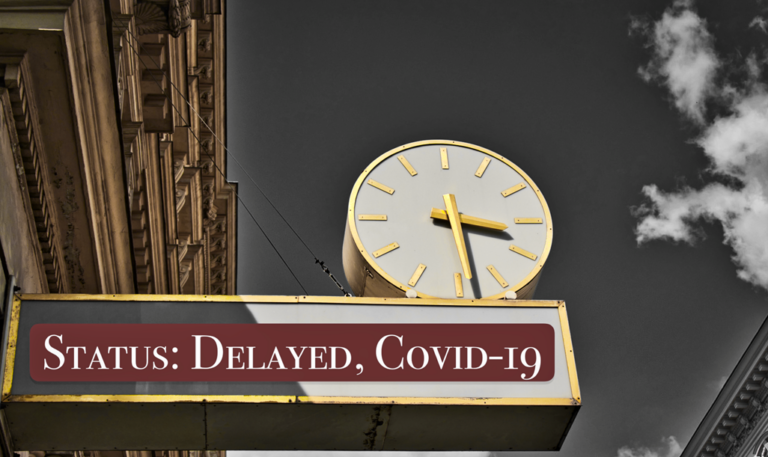INTRODUCTION
The COVID-19 pandemic has left a drastic impact globally on the political, social and economic sectors just as much as it has on the health sector. As industries and businesses worldwide struggle to remain afloat in a drawn-out period of uncertainty, interim measures have been taken by governing authorities to minimise and mitigate the effect of the pandemic. Notwithstanding this, the legal ramifications of such measures emain challenged as jurisdictions are in constant need of fine-tuning their legal restrictions and its adaptability to the global pandemic whilst maintaining the status quo. This article focuses specifically on the impact of the pandemic on the conveyancing and tenancy sector in Brunei Darussalam.
CONVEYANCING
While the initial restrictions imposed by the Ministry of Health during the first outbreak in March 2020 in Brunei prompted a temporary interruption of services offered by the Lands Department (“Lands Department”), fresh restrictions were enforced on 7th August 2021 ultimately leading to further interruption of services. As the current restrictions remain in place, the legal implications caused by the interruption highlights the need for review and immediate adaptability.
At the time of this article, the partial lockdown imposes fresh movement restrictions while reducing the operating capabilities of government offices, including the Ministry of Finance & Economy (“MOFE”) as well as the Lands Department.
DELAYED DUE DILIGENCE
It is incumbent on legal firms and/or parties to conduct their due diligence befor e proceeding with the sale & purchase of or the transfer of beneficial/legal interest in real estate property. This is to ensure that the property is free of encumbrances and that the parties are not subject to any bankruptcy suits. However, such processes are severely limited by the operating capabilities of the registries involved.
At the time of this article, the Lands Department in the Brunei-Muara District has imposed a limit of two (2) applications on two properties a day on each legal firm respectively, provided , however, if such legal firm is granted an appointment, in order to obtain reports on the property or on the list of lands registered in the name of the landowner. Similarly in other districts, only reports on the property itself are allowed.
Where properties are currently being developed, the same due diligence is required in order to ensure that the development complies with the government regulations and guidelines. Typically, searches are conducted at the Town and Country Planning Department, however at the time of this article, the submissions of applications to obtain such reports have also been sever ely limited indefinitely. Inevitably, this significantly delays the process of advising parties and/or financial institutions on the viability of proceeding with real estate transactions.
DELAYS IN PAYMENTS
Alongside due diligence, an additional concern would be the payments towards the purchase price of the real estate property by way of financing facilities. This may be facilitated through the use of a lump sum payment if the property is completed or where the property is under construction, in progress payments. Financial institutions would have to bear the risk of disbursing these payments in light of the difficulties presented in this article.
One particular concern is whether financial institutions are willing to bear the risk of deferred payments or default where customers or borrowers are either receiving reduced salaries or have been laid off. Consequently, such a high risk of deferment or default would mean that financial institutions may be less inclined to provide financing facilities to current or potential customers or borrowers.
Agreements may therefore need to be adapted where parties are at a risk of default or further liability in attracting late payment penalties in the form of interest accrued. Where such circumstances arise, the delayed payments may persist for lengthy periods of time. Parties may seek some flexibility in payments and the interest that may be accrued in delayed payments as well as possible events of default in order to adapt to this new reality.
Whilst there are interim measures put in place by Brunei Darussalam Central Bank (BDCB) vide Notice No. BU/N-1/2020/65 Amendment No. 2 issued pursuant to Section 66 of the Banking Or der which sets out temporary measures and regulatory relief to banks in deferring payment of property loans or financing for home ownership and property investment until 31 December 2021 (for the time being), such applications for deferment are not universally approved. Certain criteria and eligibility are required before customers can be temporarily relieved of their payment obligations which means that there will be situations where the interest of financial institutions are at risk.
STAMPING OF AGREEMENTS
Under the Stamp Act (Cap. 34), transactions involving property (whether by tenancy, conveyance, lease agreements) in Brunei Darussalam, mortgages, assignment of monies and declaration of trusts shall be charged with an ad valorem stamp duty, failing which, penalties such as under s 56 of the Stamp Act.
Due to the limited operating capabilities of MOFE at the time of this article, the stamping of such documents is inevitably delayed. There are currently no interim measures to deal with non-payment and the consequences thereof (i.e. penalties of non-stamping). On 1st April 2020, the Indian Government introduced amendments to the Indian Stamp Act 1899 (vide Revenue Department vide Notification No. F S.33013/13/3/2019 ST-I)
in order to tackle issues of social distancing and COVID-19 as well as the closure of payment counters. Online stamp duty payment portals and e-stamping facilities have therefore been introduced to deal with the challenges posed by the pandemic.
It is hoped that such measures can be implemented in Brunei Darussalam as the legal implications of non-stamping or delayed stamping of agreements remain unclear.

DELAYS IN COMPLETION
Delays in ongoing development projects due to the partial lockdown may also have legal implications depending on the construction of the practical completion clauses. Where parties agree on a practical completion period, the developer is responsible for ensuring that the construction of the property does not surpass the agreed practical completion date, which would normally incur penalties such as liquida ted damages. Agreements may of course provide for flexibility in such situations where the developer is allowed to delay the practical completion of the property due to government movement restriction orders. However, no me asur es have been implemented in Brunei Darussalam with regard to the rights and obligations of the developer in effecting practical completion as well as the rights and remedies for the purchaser in these circumstances.
In Malaysia, the COVID-19 Act had been introduced to deal with the enforcement of contractual rights against a defaulting party where such default arises out of non- performance due to the restrictions caused by COVID-19. In particular, Section 7 of the COVID-19 Act expressly stipulates that a non-defaulting party shall not enforce their rights against the defaulting party if such obligation to perform was affected due to the measures prescribed to prevent the spread of COVID-19.
Construction contracts were listed in one of the Schedule which is covered by Section 7. Similar steps have been taken in Singapore where a party’s inability to perform if caused by COVID-19 shall not be enforced.
LAND TRANSFERS & LEASES
Current operating procedures in the Lands Department include the limitation of all Memorandum of Transfers (“MOT”) to only two (2) applications per appointment granted, whereas Lease Applications ar e to be submitted via ‘dropbox’. Parties of sale and purchase transaction are therefore unable to apply for the transfer of legal interest within the time normally stipulated within their sale and purchase agreements.
Therefore, the legal consequences emanating from this interruption ar e dependent upon the construction and clauses of the agreements itself. Agreements may include a force majeure clause, the extent of which should also cover pandemics such as COVID-19. In the alternative, parties may have the option of termination based on the doctrine of frustration. However, the legal thresholds for effecting frustration are quite difficult to satisfy.
Where such agreements are prepared with this consequence in mind, parties may choose to rely on clauses that remedy the postponement of the submission of the MOT application. Nevertheless, whether an agreement deals with this legal consequence, it remains that the status of legal ownership in the property is vested in the original landowner until the MOT application is successful. Therefore, thelegalconsequences for homeowners and financial institutions alike are that MOT applications as well as Lease applications will largely rest upon the construction of agreements as well as the ad hoc policies introduced by the Land Office.
CHARGE APPLICATIONS
Charge applications at the Land Office can still be made, but are submitted through their drop-off service. Similar legal implications apply – where, depending on the capacity and time taken by the Land Office to process such applications given their reduced services, there may be a delay in application and approval which may affect the interests of financial institutions in securing the financing facilities by way of legal charge.
REGISTRATION OF POWER OF ATTORNEY
As of 28th September 2021, a circular notice had been issued by the Office of Registrar of Power of Attorney (“ROPA”) wherein Power of Attorney documents may be submitted for registration, however, this had been limited to FIVE (5) documents per appointment given by ROPA. This will significantly cause delays as the powers and rights of financial institutions, vendors, developers and/or customers/ purchasers in dealing with their properties cannot be effected until the Power of Attorney has been successfully registered.
TENANCIES
Although the gener al requirements for effecting tenancy agreements and maintaining the legality of such tenancies are minimal, the legal implications caused by the pandemic have left a similar impact on the currency and future of tenancies.
The initial measures implemented by MOFE on 21st March 2020 relaxed the rental fees on government buildings towards Micro, Small and Medium Enterprises (MSMEs) as well as various targeted sectors including restaurants and cafes. The reduced rental fees by 70% as implemented by MOFE was aimed at “assisting in reducing operating costs towards businesses within the scope”. MOFE recognised however in a later statement on 2 April 2020 that in regards to rental fees on tenancies in non- government buildings, “the government has no legal rights” to impose reductions and therefore could only encourage landlords to reduce the rental fees on tenancies.
In Singapore however, the COVID-19 (Temporary Measures) Act was swiftly passed in early 2020, with an additional amendment made in June 2020 mandating rental relief for Small and Medium Enterprises (SMEs) in the form of government grants and subsidies as well as requirement for landlords to reduce rental fees. A feature of this rental relief allows for up to four months of rental relief for SMEs operating in commercial premises and two months of relief for those operating in industrial and office spaces. The criteria for rental relief is qualified by the amount of turnover the business receives, proof of a substantial drop in average monthly revenue by 35% or more and that the tenancy must be in force on 1 April 2020.
It is not surprising, therefore, that given the impact of thepandemic, tenants in non- government buildings may seek payment deferments or a reduction in the monthly rental fees from their landlords. Therefore, tenants may look towards a review of the tenancy agreements they had executed in order to exercise their rights and remedies. Unfortunately, such agreements may be limited in providing such payment deferments or at the very least, reductions in the rental fees paid to the landlord.
Conversely, landlords may also seek to enforce their rights and remedies in maintaining the payment intervals as well as the rental fees and may decline such requests from tenants, given that the such tenancy agreements do not contain provisions that facilitate deferments or reductions. Landlords may then seek drastic measures such as evicting tenants or forfeiting deposits, str aining the relationship between landlord and tenant.
Additional issues that may not be anticipated in current tenancies are measures to ensure the health and safety of tenants. While such measures may not be essential for businesses that have their own standard operating procedures, there are residential tenants who may seek additional precautions e.g sanitation of the premises. While landlords may be required under the tenancy agreement to conduct regular intervals of maintenance, such intervals may be prolonged or reduced in order to avoid contact with tenants. Where tenancy agreements are inflexible in this regard, landlords may review tenancy agreements to address these issues.
Herein lies the conflict: landlords and tenants may look towards asserting their rights and remedies in the face of a pandemic, while maintaining balance and flexibility in tenancy agreements. Tenants may seek tenancy agreements that protects them from eviction and forfeiture while avoiding clauses that heavily favour the landlord. Conversely landlords may insist on clauses that enforce timely rental fee payments while also allowing flexible maintenance intervals. In this aspect, as there are no measures currently in place for tenancies in non-government buildings, parties should endeavour on a balancing exercise to ensure a healthy tenancy relationship while protecting their rights and interests under these agreements.
THE FUTURE
It is hoped that some of the measures implemented in other jurisdictions may be applied in Brunei Darussalam in order to curb the impact COVID-19 has had on conveyancing and tenancy. While interim measures have been implemented by BCDB merely on loan deferments, there are yet to be other measures to be introduced to deal with the legal implications of the COVID-19 discussed above.
In the meantime, however, it may be worthwhile for parties and financial institutions to revisit agreements to ensure that their interests remain fully protected and to be able to adapt to novel situations such as the current pandemic.

For more information, kindly contact us at Yusof Halim & Partners.
*The contents of this newsletter are intended to convey general information only and not to provide legal advice or opinion*







